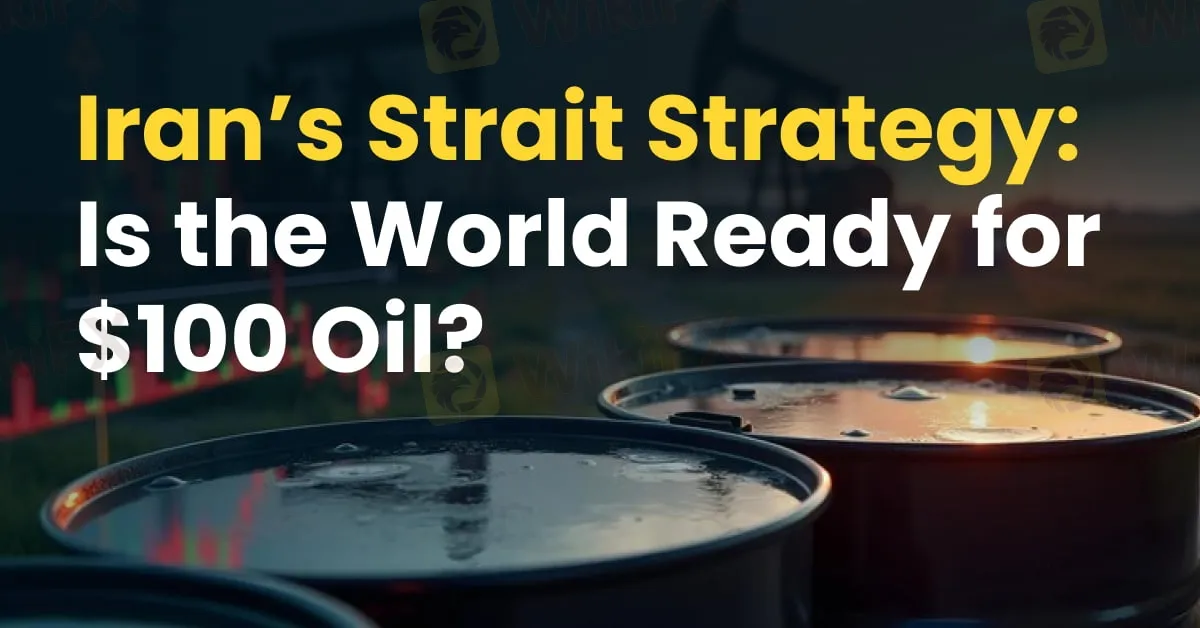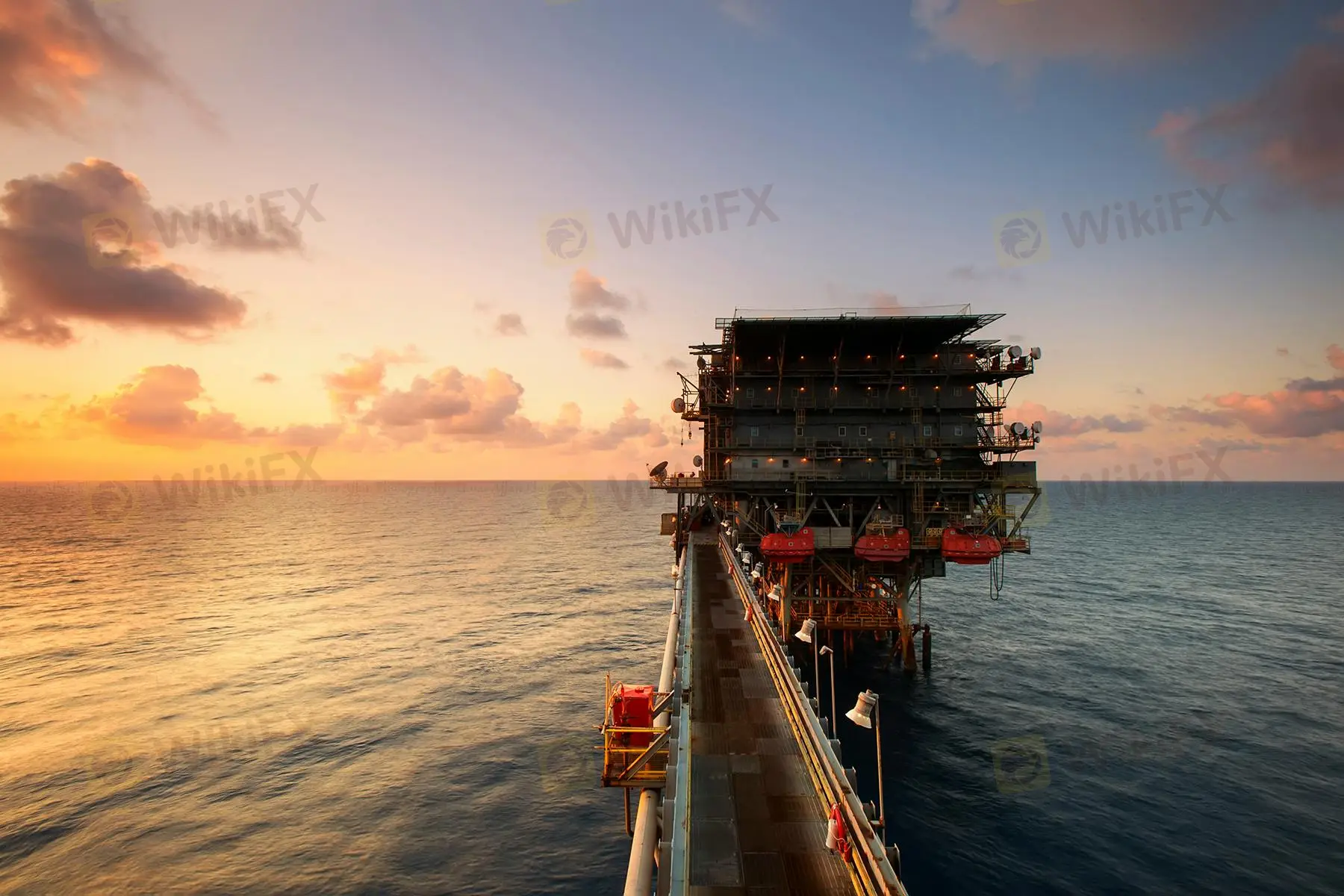Iran’s Strait Strategy: Is the World Ready for $100 Oil?
Abstract:Tensions in the Middle East are rising quickly, and global oil markets are already feeling the pressure. Since Iran and Israel entered open conflict, oil prices have jumped from around $60 to nearly $80 per barrel. Now, with the United States joining the fight and launching strikes against Iran, the situation has become even more serious. Iran’s threat to seal off the Strait of Hormuz could ignite a global energy meltdown, spike oil prices beyond $100, and unleash economic chaos across the world.

Tensions in the Middle East are rising quickly, and global oil markets are already feeling the pressure. Since Iran and Israel entered open conflict, oil prices have jumped from around $60 to nearly $80 per barrel. Now, with the United States joining the fight and launching strikes against Iran, the situation has become even more serious. In response, Iran has threatened to shut down the Strait of Hormuz, which is one of the worlds most important oil shipping routes.
The Strait of Hormuz is a narrow waterway between Iran and Oman. It connects the Persian Gulf to the rest of the world, and about one-third of the worlds seaborne oil trade passes through it. If Iran follows through and blocks the strait, global oil supply could drop sharply. That could easily send oil prices above $100 per barrel.

Closing the strait would also hurt Iran, as oil exports are a key part of its economy. Still, Irans leaders seem ready to take that risk. Since they cannot hit the United States directly, they are targeting something just as important: its economy. Rising oil prices could bring back global inflation and force the U.S. central bank to delay interest rate cuts or even raise rates again. This would hurt stock markets, increase borrowing costs, and limit how much the U.S. government can spend.
Of course, this is not a one-sided move. Blocking the Strait of Hormuz would also damage Irans own economy, especially during wartime when it needs money the most. But Iran may see the short-term pain as worth it if it can create trouble for its enemies.
Other countries in the region would also suffer. Saudi Arabia, Iraq, and Kuwait send most of their oil through the Strait of Hormuz. The United Arab Emirates has a small pipeline that can help, but it‘s not enough. Qatar, the world’s biggest exporter of liquefied natural gas, also relies heavily on the strait. If it‘s closed, these countries may watch oil prices rise, but won’t be able to sell their oil.
On the other hand, Russia could benefit. Still under pressure from the war in Ukraine, Russia has been selling oil through pipelines and alternative routes. If prices go up, Russia could earn more money and ease some of its financial problems.
In the end, this conflict may not have a clear winner. Iran likely cannot win in a direct fight against the combined forces of the U.S. and Israel. But that may not be its goal. Instead, Iran may be trying to drag out the conflict, shake financial markets, and raise costs for its opponents. The longer it lasts, the more pressure it puts on Israels budget and the U.S. economy.
This is a risky game with high stakes. And once again, it shows how a small stretch of water can affect the entire world economy.

Read more

Yen Rebounds! Is This the Opportunity Investors Have Been Waiting For?
The Japanese yen has staged a sharp rebound, breaking below key technical levels against the U.S. dollar. With diverging central bank policies, heightened risk sentiment, and a shifting macro backdrop, is this a real opportunity—or a trap?

VIPS Group of Companies Exposed: ED Seizes Assets in 100-Crore Ponzi Forex Scam
The Enforcement Directorate (ED) has cracked down on an INR 100-crore scam involving illegal forex trading and Ponzi schemes by seizing immovable assets and digital devices besides freezing bank accounts across multiple cities in India. Read more.

Foraxi Joins the WikiFX Family
Explore how the addition of Foraxi to the WikiFX family opens up forex trading growth avenues for traders around the world.

OneRoyal: Regulated in Some Countries, Warned by Others
When choosing a broker in the online trading world, it’s important to check who regulates them and what kind of services they are allowed to offer. OneRoyal is a broker operating in different countries and holding several licences from recognised regulators. However, some details raise concerns that traders should not ignore.
WikiFX Broker
Latest News
Top Wall Street analysts like these three stocks for long-term growth
Dow futures slide 150 points as oil rises following U.S. bombing of Iran: Live updates
Asia-Pacific markets set to open lower as U.S. bombing of Iran escalates Middle East crisis
Oil at $100 a barrel? U.S. role in Iran-Israel fight fuels market jitters
Consob Blocks 7 Fraudulent Investment Websites Amid Ongoing Crackdown
MyFundedFutures Tightens Compliance Measures Following Regulatory Pressure
Investors Beware! The Pound May Face a Downturn in the Second Half of the Year
European markets start the week lower as Middle East crisis worsens
Latest FCA Warning List Out! Beware & Protect Your Money
European defense stocks sell-off intensifies after U.S. hits Iran
Rate Calc

